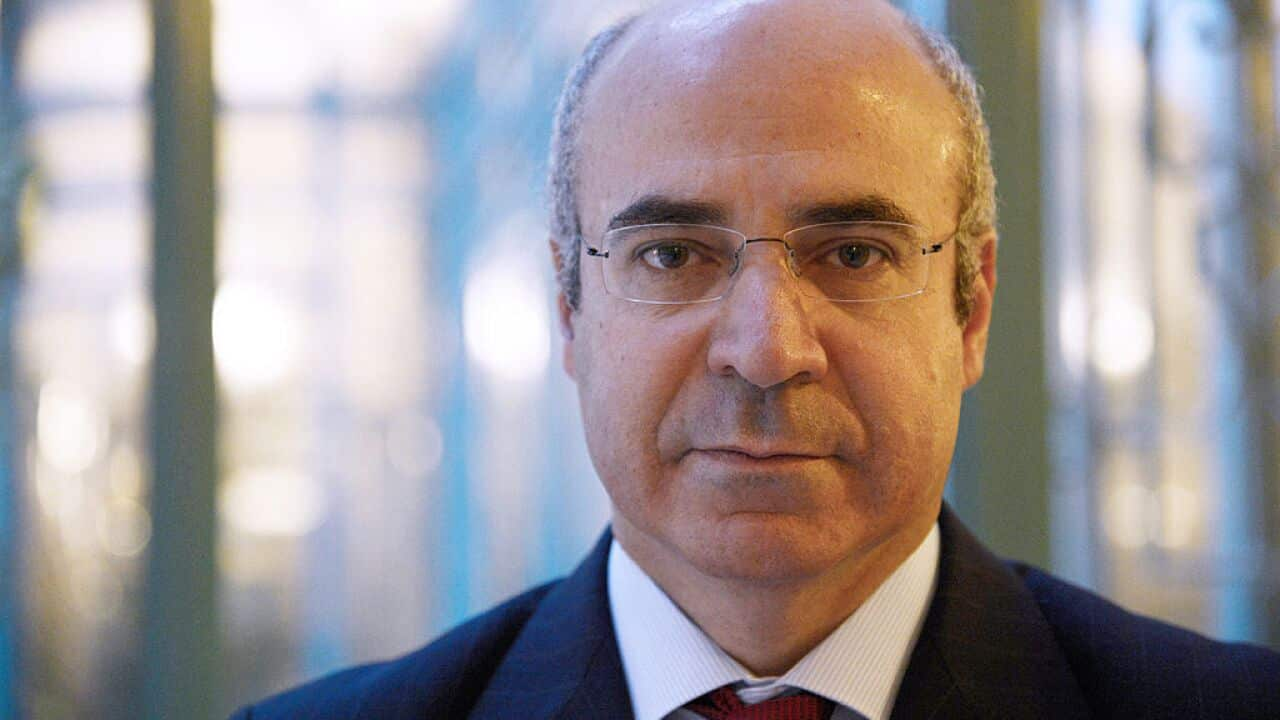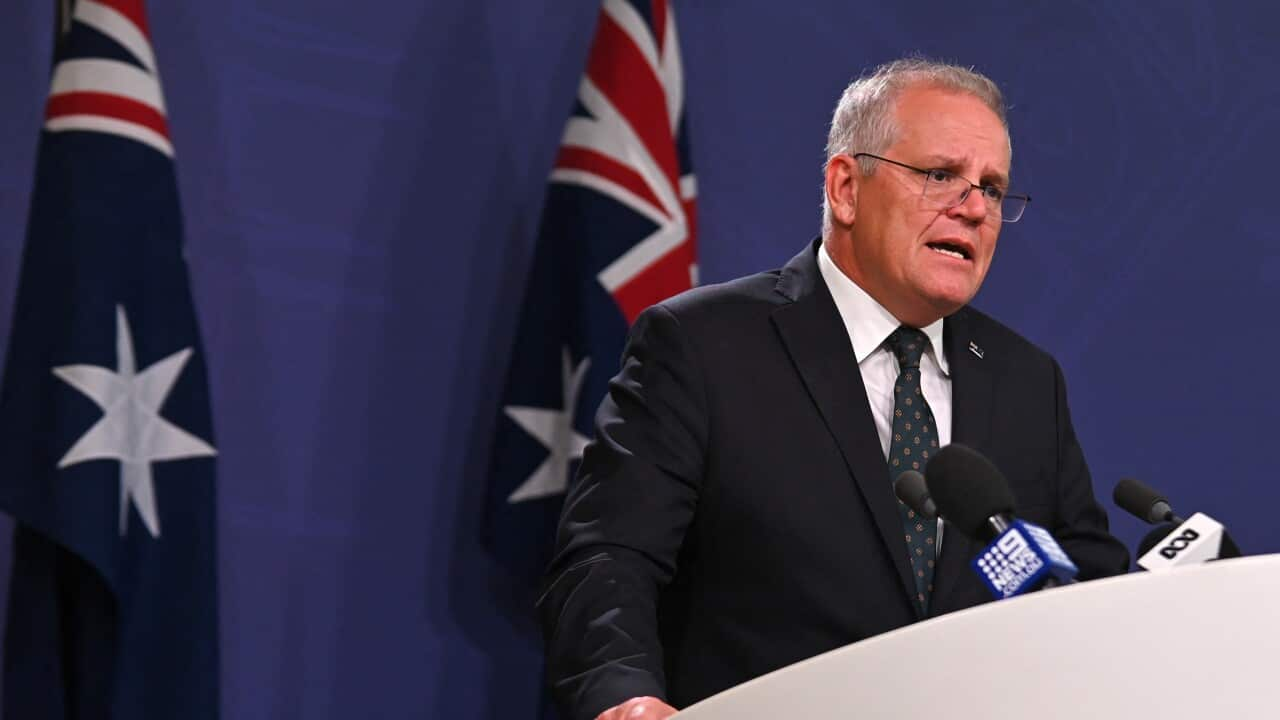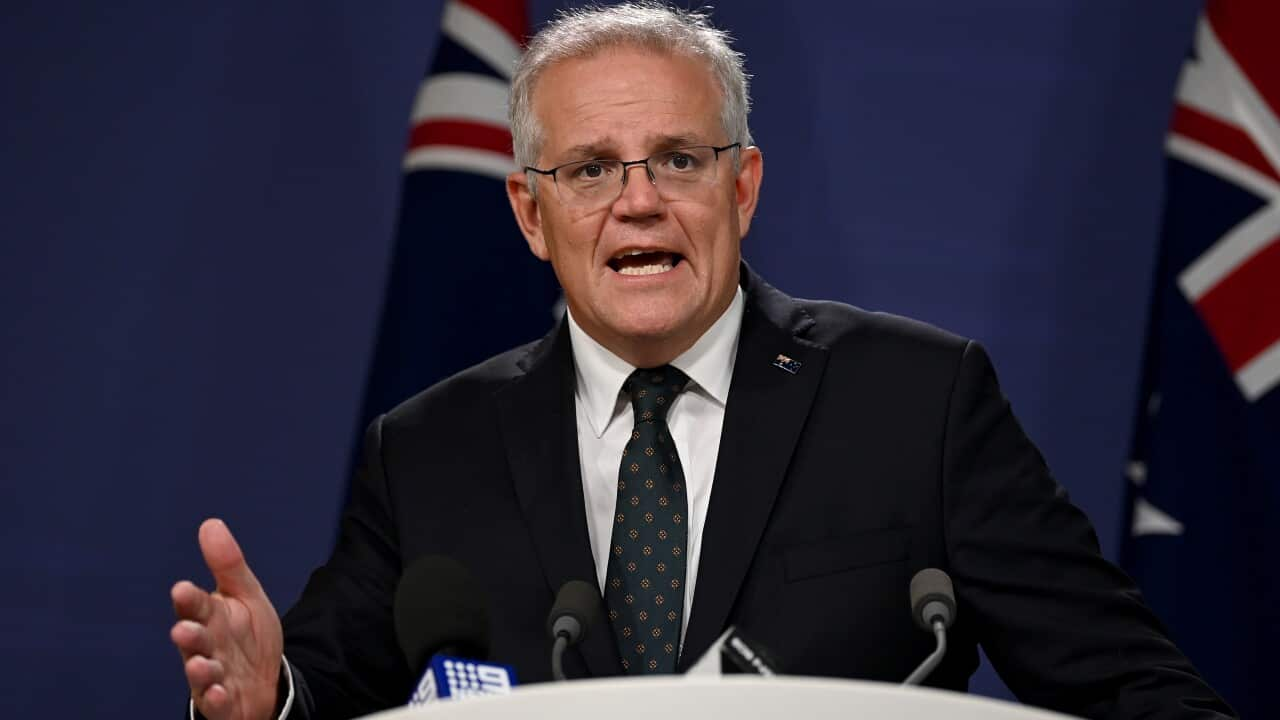The man who spearheaded a global push for stronger laws to sanction human rights abusers says more action can still be taken to punish Russia and its president Vladimir Putin.
Global allies have continued to ratchet up their sanction response against Moscow since the invasion of Ukraine - including personally targeting Russia’s president.
But prominent financier Bill Browder argues influential oligarchs used to funnel Mr Putin’s wealth remain an underutilised pressure point to be clamped down on.
“It so far hasn't been done on any large scale and I think doing it would definitely get Putin to change his calculus,” he told SBS News.
“Freezing those assets is an extremely powerful method of getting to Putin and it's something that should be done.”
Mr Browder was behind a global campaign for countries to adopt so-called Magnitsky-style laws that allow governments to sanction human rights abusers and corrupt officials and seize their assets.
The Australian government legislated similar powers in December last year, which have since been harnessed to significantly expand its sanctions regime against Russia.
The Magnitsky laws were named after Sergei Magnitsky, a Russian lawyer who uncovered US$230 million ($320 million) worth of tax fraud committed by Russian government officials in 2018.
After Mr Magnitsky testified against the officials he was imprisoned, allegedly tortured and later died in jail.
Before this, Mr Magnitsky had been Mr Browder's lawyer, prompting the financier to lead a push for the US Magnitsky Act to be adopted in 2012.
Similiar laws were later adopted in the United Kingdom, Canada and European Union.
Mr Browder said the “heartbreaking” situation in Ukraine called on Western nations to harness the powers to their fullest extent against Mr Putin’s support network.
“Putin's wealth is held in on handshake agreements with oligarch trustees and so by sanctioning the oligarchs we're getting to Putin as well,” Mr Browder said.
“It's quite straightforward, you sanction the oligarch - you sanction Putin.”
What action has Australia taken?
The Australian government has said it will continue to work with allies and like-minded countries to impose further economic sanctions on Russia.
So far, Australia has sanctioned more than 350 Russian individuals, including oligarchs, members of Russia’s parliament and military commanders.
In a significant step, it has imposed financial sanctions and travel bans directly against Mr Putin, effective from Monday.
It has also targeted eight members of Russia’s security council, including Foreign Minister Sergei Lavrov, Defence Minister Sergei Shoigu, Prime Minister Mikhail Mishustin and Internal Affairs Minister Vladimir Kolokoltsev.
Other targets include 13 Belarusian individuals and entities, including Belarusian Minister of Defence Viktor Khrenin, deemed complicit in Mr Putin’s military offensive.
The response has been made in coordination with global partners including the United States, United Kingdom, Canada, NATO and the EU.
It combines with other sanctions on Russia, such as on its energy sector and the exclusion of certain Russian banks from the international banking system SWIFT.
Dr William Stoltz, senior adviser for public policy at the National Security College at the Australian National University, said Australia’s capacity to call on Magnitsky-style sanctions had been vital in ensuring its response could match global allies.
“It streamlines the application of sanctions to allow them to apply to individuals much faster and to target a much more creative range of their interests,” he said.
He also said its introduction likely ensured the intelligence community were more prepared to respond to the urgent requests for sanctions to be imposed.
“The fact we did the Magnitsky laws probably helped spin up that effort to get them ready for being more active in implementing sanctions,” he said.
Global allies are weighing their hopes on the cumulative economic toll of the sanctions undermining Russia over time.
Dr Stoltz said he believed the sanctions could deliver “unprecedented economic pressure” against the Kremlin.
“The pain that is going to be triggered because of this global response is going to bring the Russian economy to its knees,” he said.
Mr Browder said the need to take a unified stand was clear.
"We're in a very dangerous situation where things could get a lot worse - most importantly Vladimir Putin isn't going to stop with Ukraine," he said.
"It's crucial that we all pitch in and do whatever we can to stop him where he is and not escalate to the point we're in a West versus Russia war."













